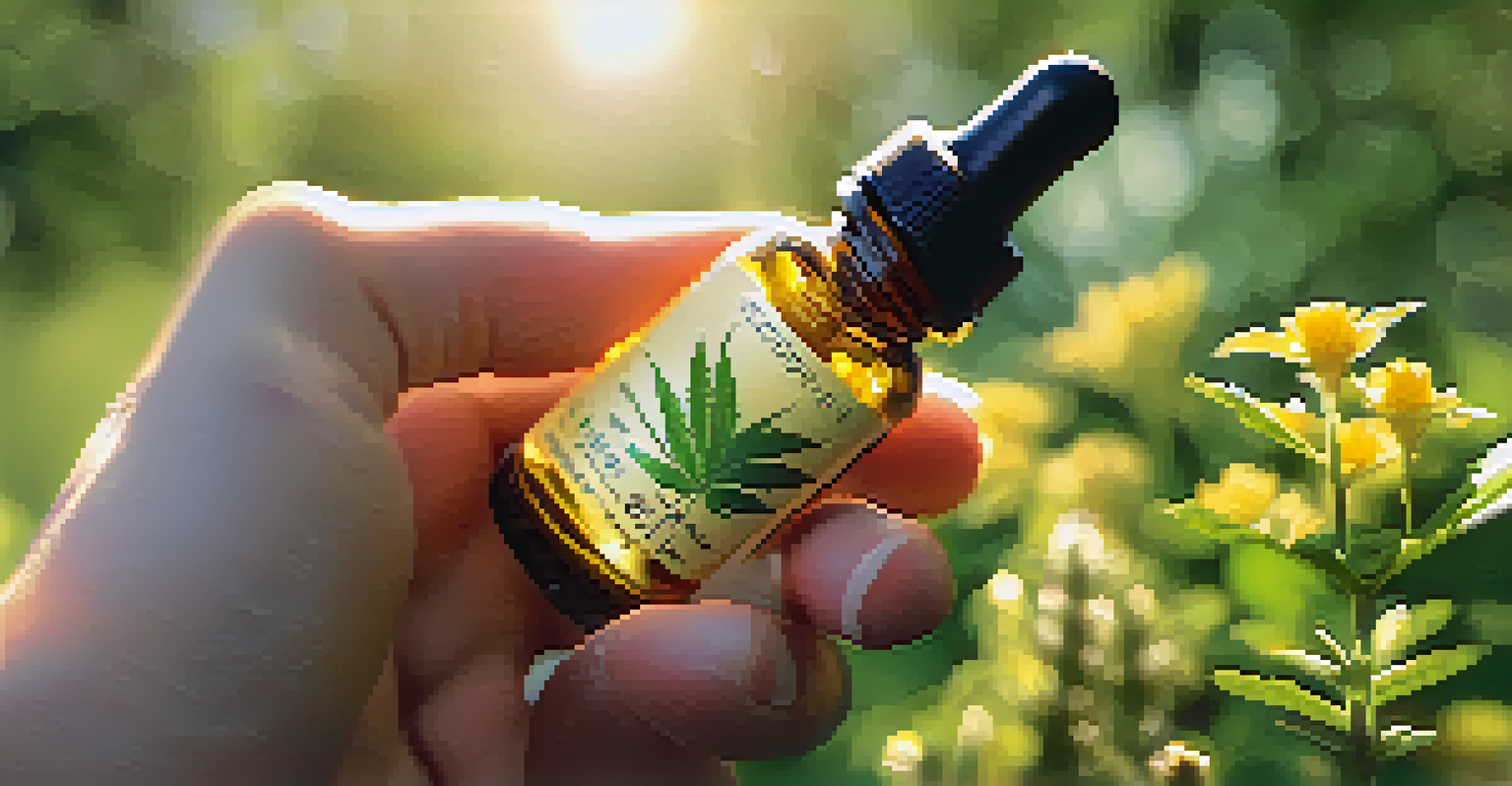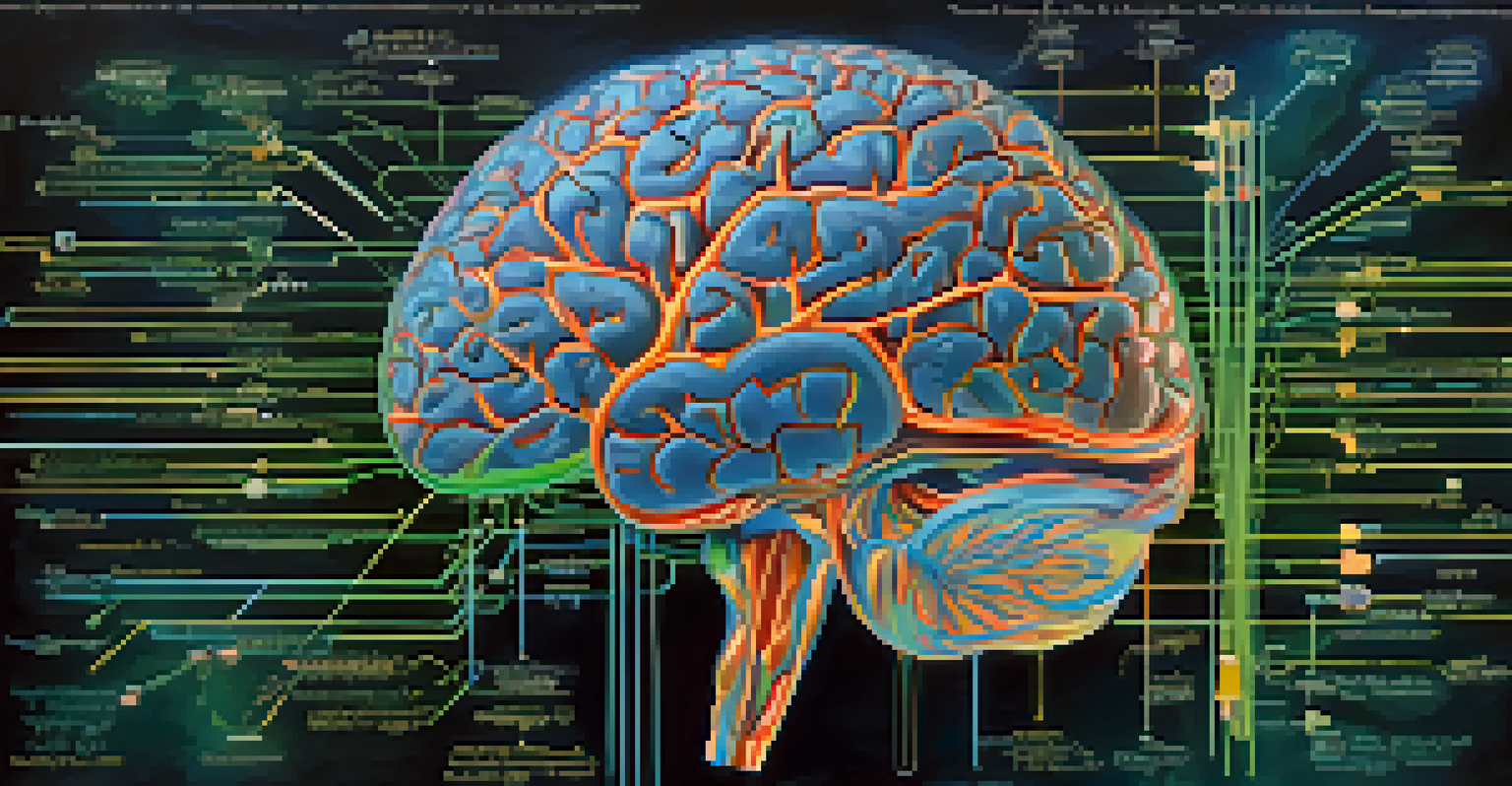CBD vs. THC: Which is Better for Sleep Improvement?

Understanding CBD and THC: The Basics
CBD (cannabidiol) and THC (tetrahydrocannabinol) are both compounds found in the cannabis plant, but they serve different purposes. CBD is known for its potential therapeutic benefits without causing a 'high', while THC is the psychoactive component that can alter your state of mind. Understanding these differences is crucial when considering their effects on sleep.
The greatest wealth is health.
Research suggests that CBD may help with anxiety reduction and improve sleep quality by addressing the root causes of insomnia. In contrast, THC can induce drowsiness and help people fall asleep faster, but it may also disrupt the sleep cycle. This fundamental difference plays a significant role in how each compound affects sleep.
When exploring sleep solutions, it’s essential to consider your individual needs. Some may prefer the calming effects of CBD, while others might find THC more effective for their sleep issues. Knowing the basics of these compounds sets the stage for a deeper comparison.
The Science Behind CBD and Sleep
Studies show that CBD interacts with the body's endocannabinoid system, which plays a role in regulating sleep and wake cycles. By potentially reducing anxiety and promoting relaxation, CBD can create an environment conducive to better sleep. This is particularly appealing for those who struggle with anxiety-related insomnia.

In one study, participants reported improved sleep quality after using CBD, suggesting that it may help not just with falling asleep, but also staying asleep. CBD’s non-psychoactive nature means it’s often viewed as a safer option for those wary of THC’s effects. This makes it an attractive choice for people looking for natural sleep aids.
CBD vs. THC for Sleep Solutions
CBD offers calming effects without a high, while THC may help with falling asleep but can disrupt sleep quality.
However, while promising, the research on CBD and sleep is still evolving. More extensive clinical trials are necessary to fully understand how CBD can optimize sleep. In the meantime, anecdotal evidence and preliminary studies suggest it’s worth considering for those struggling with sleep issues.
How THC Affects Sleep Patterns
THC is often associated with inducing sleepiness, which can be beneficial for individuals who have trouble falling asleep. Its psychoactive properties can help people unwind and transition into sleep more easily. However, the impact of THC on the overall sleep cycle is more complex.
Your body hears everything your mind says.
Some research indicates that while THC can help you fall asleep faster, it may also reduce REM sleep, the restorative phase of the sleep cycle. This disruption can lead to a feeling of grogginess or fatigue upon waking, which is something many users experience. Therefore, while THC might help initiate sleep, it may not provide the quality of sleep that some people need.
For those considering THC as a sleep aid, it’s essential to strike a balance. Low doses might be effective for falling asleep, but higher doses could lead to unwanted side effects. Understanding these nuances can guide users in making informed decisions about their sleep enhancement strategies.
Potential Side Effects of CBD and THC
While both CBD and THC offer potential benefits for sleep, they also come with their own set of side effects. CBD is generally well-tolerated, but some users may experience fatigue, changes in appetite, or digestive issues. It’s important to start with a low dose and monitor your body’s response.
On the other hand, THC can cause a range of side effects, including short-term memory impairment, increased heart rate, and, in some cases, anxiety or paranoia. These effects can vary widely based on individual tolerance and dosage. Users should approach THC carefully, especially if they are new to it.
Importance of Dosage
Starting with low doses of CBD or THC is crucial for finding the right balance that promotes restful sleep.
Understanding potential side effects is crucial when choosing between CBD and THC for sleep improvement. It’s always recommended to consult a healthcare professional before starting any new supplement regimen, particularly if you have existing health conditions or are taking medications.
Choosing the Right Product for Sleep
With a variety of CBD and THC products available—oils, edibles, tinctures, and more—it can be overwhelming to choose the right one for sleep. Start by considering your personal preferences and lifestyle; for instance, if you prefer a quick solution, a tincture might be ideal, while those who enjoy a sweet treat may prefer edibles.
Additionally, consider the potency and dosage of the product. For CBD, a lower dose might be effective for relaxation, while THC users might need to experiment with dosages to find what works best for them. Always check for third-party lab testing to ensure product quality and safety.
Ultimately, the right product will depend on your individual body's response. It may take some trial and error, but finding the right CBD or THC product can lead to improved sleep and overall well-being.
The Role of Dosage in Sleep Improvement
Dosage plays a crucial role in the effectiveness of both CBD and THC for sleep. For CBD, studies suggest that lower doses (around 10-20 mg) may be effective for improving sleep quality without causing drowsiness the next day. It's all about finding the sweet spot that works for you.
When it comes to THC, the dosage can vary significantly based on individual tolerance. Some may find relief with just a small amount, while others may need a higher dose to experience the sleep-inducing effects. However, it’s essential to avoid high doses, which can lead to unwanted side effects and disrupt sleep quality.
Consult a Healthcare Professional
Before using CBD or THC for sleep, it’s essential to consult a healthcare provider for personalized advice.
In any case, starting with a low dose and gradually increasing it while monitoring your body’s response is the best approach. This method allows you to tailor your dosage to your specific needs, ensuring a better chance for restful sleep.
Consulting with Health Professionals
Before diving into the world of CBD and THC for sleep improvement, consulting with a healthcare professional is a wise step. They can provide personalized advice based on your health history and current medications, ensuring that you make informed choices. This is especially important for individuals with underlying health conditions or those taking prescription drugs.
Healthcare providers can also offer insights into potential interactions and side effects, helping you navigate the options more effectively. They may recommend starting with CBD if you're particularly cautious about psychoactive effects or suggest specific THC products that have worked for other patients.

Ultimately, professional guidance can help you find the most suitable approach for your sleep issues, paving the way for a restful night's sleep without unnecessary risks. It’s all about making informed choices that align with your health goals.